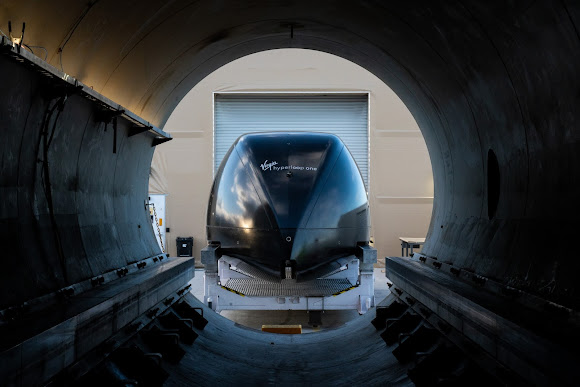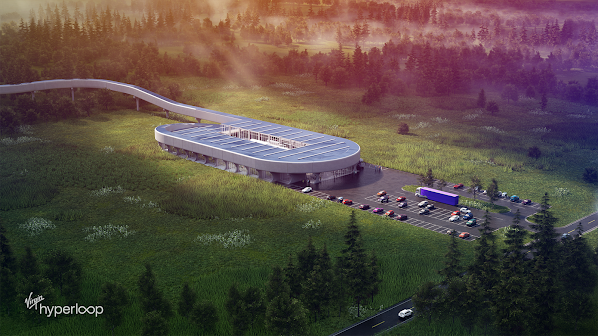- General
- October 9, 2020
- 5 minutes read
Virgin Hyperloop To Test In West Virginia
Photo credit: Virgin Hyperloop Virgin Hyperloop, the high-tech transportation technology company, has announced that it’ll set up a testing bed…
 |
| Photo credit: Virgin Hyperloop |
Virgin Hyperloop, the high-tech transportation technology company, has announced that it’ll set up a testing bed for its futuristic hyperloop transport system in the U.S. state of West Virginia, with plans to build a $500 million certification center in the state where it’ll develop, test, and validate the technology that underprops its still-conceptual high-speed transport system. Virgin Hyperloop has announced the US state of West Virginia as its test bed months after the U.S. government laid out the regulatory framework for a conceptual hyperloop transport system. For now, there exists no fully functional hyperloop transport system anywhere globally, and none of its tests have been conducted with humans aboard.
 |
| A rendering of the planned Hyperloop Certification Center (HCC).
Photo credit: Virgin Hyperloop
|
Backed by hundreds of millions in funding and particularly from British conglomerate Virgin Group, Virgin Hyperloop is aiming to be the first company to put together a full-sized operational hyperloop transport system. For context, the Hyperloop is a proposed passenger and freight transport system consisting of a sealed tube or system of tubes with low air pressure through which a manned pod may travel substantially free of air resistance or friction. The concept was first proposed by a joint team of personnel from electric carmaker Tesla and aerospace company SpaceX. Since its formal proposal, competitions and events have been held to help build on the concept, and with a few companies spurred in the process, one of which is Virgin Hyperloop.
Virgin Hyperloop has now agreed to set up a facility in the state of West Virginia after 17 US states initially vouched to house the facility. The facility is where Virgin Hyperloop will conduct tests and validation processes with hopes of dishing out a full-sized operational system at the end. The company has said that it’s aiming to achieve safety certification for its transport system by 2025 and begin commercial operations by 2030.







